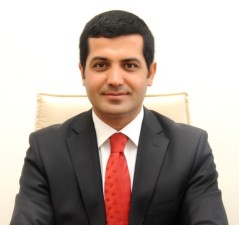In this post Saban Akca presents findings from his recently completed PhD research into the behaviour of district governors in Turkey. His thesis is titled ‘The Complex Role of District Governors in Turkey: A Case of Sui Generis Public Leadership’.
Turkish district governors are centrally appointed public administrators who represent the Turkish state at localities across the country. They have been charged with various and diverse responsibilities, including security and public order, and they are liable to ensure the smooth delivery of other public services. However, they have enjoyed a great deal of power in local administration for more than 170 years, their co-existence with locally elected mayors and the latter’s unparalleled and rapid accumulation of power are now hitting hard the very existence of the orthodox foundation of governorships nationwide.
After this brief introduction about the roles of the Turkish governors I am now ready to explain why I have been conducting a leadership study on them. First, it should be underlined here that the study – based on my personal experiences of the perceived inadequacy of training services delivered by the Training Department of the Turkish Interior Ministry for intern governors –aimed to examine a specific ‘governorship course’. However, the direction of the study evolved into one that focuses also on governor leadership exercises, mostly because the course is a mere mannequin of the status quo, rather than a transformative leadership programme.
The study has focused on the challenge within public leadership of reconciling the sometimes conflicting interests of the national and local state. As representatives of the Turkish state at the local level, governors have undertaken a traditional local leadership role. The research for the study has examined the ways in which different governors interpret, approach and play out their leadership roles within the districts to which they are appointed, and, in particular, the ways in which they balance the respective interests of the central state with those of the locality, as shaped by the democratically elected local government system.
Much of the research focus has been on governors as individuals – rather than as a group or as an institution. In this vein, the key research question for the thesis has been ‘How do Turkish governors, in the exercise of their leadership role, balance out their responsibilities towards the central government, as servants of the central state, with those towards the locality and the communities over which they have jurisdiction?’ In addition to that and in further elaboration of governors’ leadership characters and the effects of contingencies on their leadership, the second research question is: ‘To what extent, and in what ways, are differences in the approach of governors shaped by and contingent on local circumstances as opposed to more personal traits?’.
A case study design was devised, involving 30 district governors, selected from across Turkey, and semi-structured interviews were conducted with each to explore both the perceptions and perspectives of each with regard to their leadership role and the extent to which these differed from district to district in reflection of contextual factors.
The findings demonstrated a considerable range in perspectives on and approaches to the leadership role and in the strategies and modes of operation in the pursuit of governance at local level. At the same time, the findings also highlighted some commonalities; for example, a strong ambition from an early age amongst some to become a district governor. Similarly, there was shared recognition of the importance of the adaptability of leadership strategies to local circumstances, and recognition that there cannot be ‘one model’ for this governance role. Furthermore, the findings suggested that district governors tend to approach their role as father figures, for the district population as well as for their own civil servant employees.
Recent public administration reforms in Turkey, and specifically, moves to devolve more powers to municipalities, imply changes in the role and influence of district governors. Accordingly, the research sought to understand how interviewees were viewing these changes and their implications for their role into the future. In this respect, almost all the governors expressed apprehension and much uncertainty about future prospects.

Saban Akca holds a law degree from the University of Ankara, Turkey and did his master study on the European Union at the Keele University in 2011. After achieving his lawyer qualification at the Ankara Bar Chamber in 1999, he followed a career in the Turkish civil service as a district governor from 2000 until 1 September 2016.